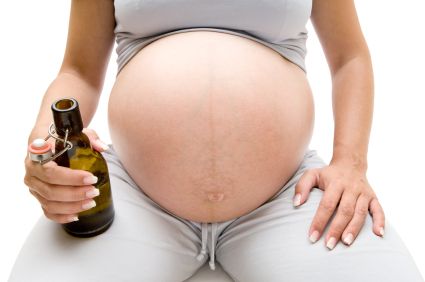Study on pregnancy and alcohol fails to take psychological factors into account
Paper 2
Niclasen, J, Teasdale, T., Strandberg-Larsen, K., Nybo Andersen, AM. Is Alcohol Binge Drinking in Early and Late Pregnancy associated with Behavioural and Emotional Development at Age Seven? (accepted for publication in European Journal of Child and Adolescent Psychiatry, December 2013)
Summary of conclusion: It was concluded that that it is worse for the behavioural development of the child if the mother had engaged in binge drinking in the large part of pregnancy compared to binge drinking in the early part of pregnancy or no binge drinking.
Paper 3
Drinking or Not Drinking in Pregnancy: The Multiplicity of Confounding Influences. Alcohol and Alcoholism (2013).
Janni Niclasen’s study only includes pregnant women who drank small quantities of alcohol. The group that she defines as having been exposed to high quantities of alcohol are women who drank 90 units of alcohol or more (within this group of women she does not distinguish between women who drank 90 units of alcohol and women who drank a lot more).
 Summary of the conclusion: The study finds that there are big differences in lifestyle factors between women who drink alcohol during pregnancy and women who do not drink alcohol during pregnancy. There are significant differences on for example educational level and important lifestyle factors. The conclusion is that these factors are insufficiently controlled for in the statistical analyses investigating prenatal exposures to low doses of alcohol and child development. This conceals the (small) effects you might expect from the prenatal exposure to low doses of alcohol. Lifestyle factors, among other things, might explain the inconsistencies in the literature investigating the impact of alcohol on child mental health later in life.
Summary of the conclusion: The study finds that there are big differences in lifestyle factors between women who drink alcohol during pregnancy and women who do not drink alcohol during pregnancy. There are significant differences on for example educational level and important lifestyle factors. The conclusion is that these factors are insufficiently controlled for in the statistical analyses investigating prenatal exposures to low doses of alcohol and child development. This conceals the (small) effects you might expect from the prenatal exposure to low doses of alcohol. Lifestyle factors, among other things, might explain the inconsistencies in the literature investigating the impact of alcohol on child mental health later in life.
Facts on the scientific papers on alcohol and pregnancy:
Facts on the population study:
The “Danish National Birth Cohort (“Better Health for Mother and Child” in Danish: “Bedre Sundhed for Mor og Barn”/BSMB) is a birth cohort that is administered by the Danish Health and Medicines Authority, and includes information on more than 100,000 pregnancies. Between 1996 and 2002 all pregnant women were given the option to participate in the study.
The women were invited to participate in interviews at the following times:
1) Two telephone interviews during the first and second part of pregnancy. The questions are concerned with her health, alcohol consumption, smoking habits, medicine intake and other lifestyle factors as well as her socio-economic status
2) Two interviews conducted at age 6 and 18 months of the child in which she was asked about her lifestyle during the final part of pregnancy and her child’s health and development
3) Questionnaires filled in at age seven of the child.
###
Facts on SDQ:
SDQ stands for “The Strengths & Difficulties Questionnaire”, which is a screening tool designed to measure behaviours, emotions and peer relationships in children and adolescents. This standard questionnaire consist of 25 items.
The 25 questions are subdivided into 5 scales: Emotional problems, peer problems, hyperactivity/ inattention, conduct disorder and prosocial behaviour. In her thesis Janni Niclasen includes two articles the psychometric properties of the SDQ. Source: The National Board on Health and Welfare
###
Janni Niclasen, Ph.D.
.(JavaScript must be enabled to view this email address)
45-40-81-77-76
University of Copenhagen